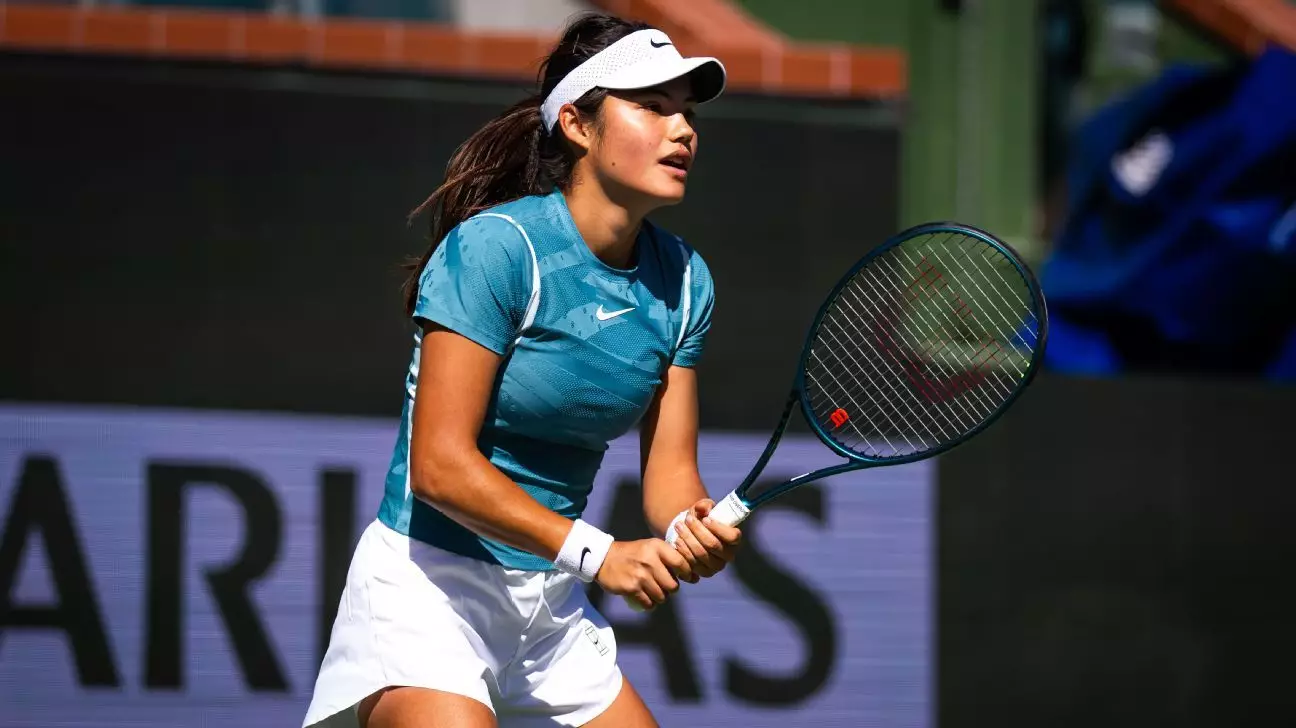Emma Raducanu, the former U.S. Open champion, has recently faced a harrowing experience that has left her shaken yet remarkably resilient. During a tense match at the Dubai Tennis Championships, she was confronted by a stalker who had reportedly been following her for weeks. This chilling intrusion not only disrupted her game but also raised alarm bells about player safety—an issue that continues to be at the forefront in competitive sports. Raducanu’s emotional turmoil was palpable as she stood distressed on the court, battling tears and the fear of the unforeseen while trying to focus on her performance against Karolina Muchova. The incident is a stark reminder of the vulnerabilities elite athletes face, often overshadowing their achievements on the court.
The Emotional Toll of Harassment
In the wake of this traumatic event, Raducanu has been candid about the mental health impact it had on her. “I literally couldn’t see the ball through tears,” she remarked, illuminating the emotional haze that influenced her concentration and performance. Such transparency highlights the often-ignored psychological aspects of competitive sports, where the pressure to perform can compound the effects of external stressors. Athletes like Raducanu, who appear strong and capable, are not immune to feelings of distress, especially when their personal safety is compromised. The incident underscores the broader issue of harassment in sports; we must champion a supportive culture where athletes feel safe to voice their concerns.
The Aftermath: A Decision to Move On
Raducanu made the courageous decision to not pursue charges against her stalker, showcasing a willingness to find closure rather than becoming mired in a legal battle. While he has been banned from WTA tournaments, her choice reflects a desire to move forward—resilient in the face of adversity. Her ability to step back from the incident and regain her mental strength over the following week is a testament to her character. In personal accounts, she stated, “It was a very emotional time… I just needed that week off to take a breather.” This recuperation period was not merely a physical reset but a crucial emotional recovery which many athletes find essential after experiencing trauma.
Preparing for the Future
Now, as she gears up for her return at Indian Wells, Raducanu represents a beacon of resilience in the world of sports. She expressed a newfound sense of purpose and mental clarity, suggesting that her experiences, although challenging, have fortified her spirit. Facing Japan’s Moyuka Uchijima in the first round, she is not just playing for a victory but also reclaiming her narrative—a narrative that transcends mere athletic achievement. With increased security measures in place, it is evident that both Raducanu and the tennis community are taking the necessary steps to ensure safety, demonstrating a proactive approach to such issues.
Raducanu’s journey is illustrative of the strength shown by athletes who confront personal demons while continuing to pursue their passions. It opens up a conversation about the intersection of mental health and sports—a call to action for both awareness and change in how we support our athletes.


Leave a Reply